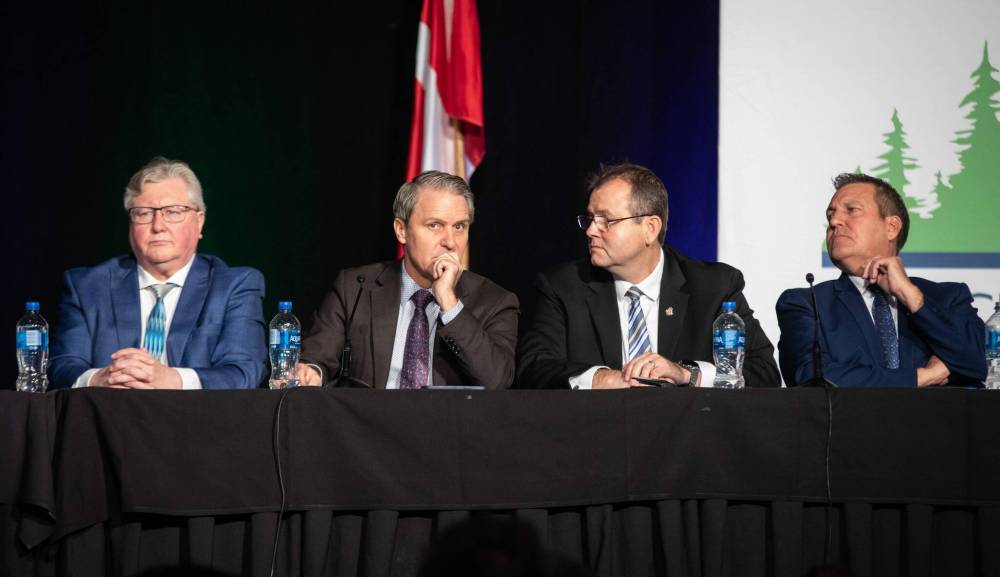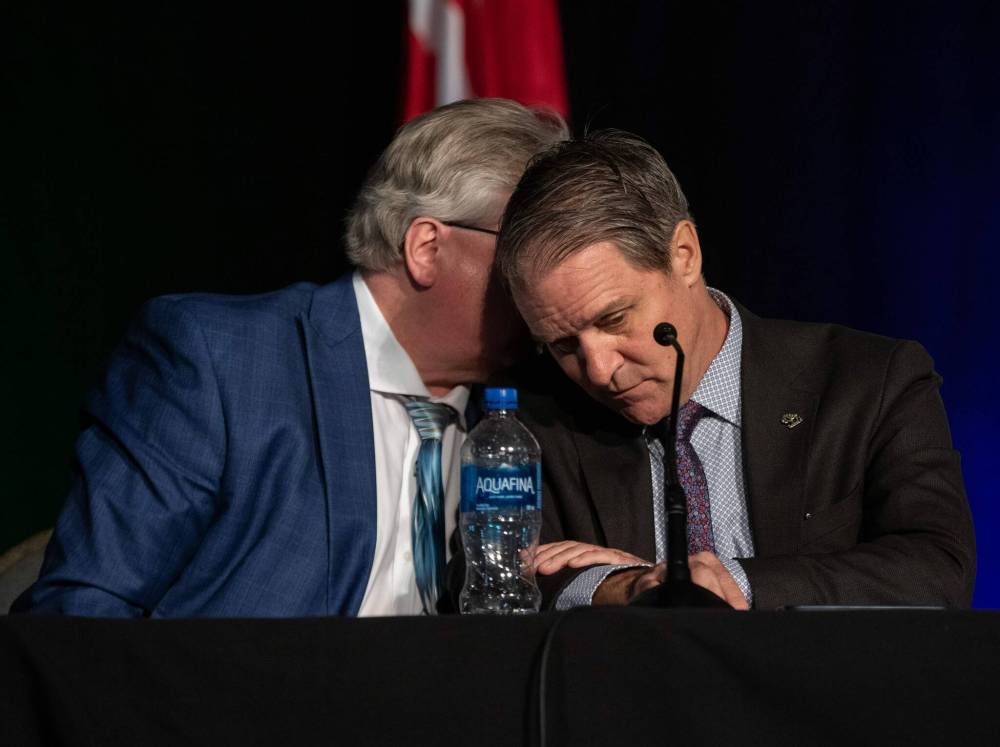Municipalities want provincial funding increased
Advertisement
Read this article for free:
or
Already have an account? Log in here »
To continue reading, please subscribe:
Monthly Digital Subscription
$0 for the first 4 weeks*
- Enjoy unlimited reading on winnipegfreepress.com
- Read the E-Edition, our digital replica newspaper
- Access News Break, our award-winning app
- Play interactive puzzles
*No charge for 4 weeks then price increases to the regular rate of $19.00 plus GST every four weeks. Offer available to new and qualified returning subscribers only. Cancel any time.
Monthly Digital Subscription
$4.75/week*
- Enjoy unlimited reading on winnipegfreepress.com
- Read the E-Edition, our digital replica newspaper
- Access News Break, our award-winning app
- Play interactive puzzles
*Billed as $19 plus GST every four weeks. Cancel any time.
To continue reading, please subscribe:
Add Free Press access to your Brandon Sun subscription for only an additional
$1 for the first 4 weeks*
*Your next subscription payment will increase by $1.00 and you will be charged $16.99 plus GST for four weeks. After four weeks, your payment will increase to $23.99 plus GST every four weeks.
Read unlimited articles for free today:
or
Already have an account? Log in here »
Hey there, time traveller!
This article was published 23/11/2022 (1112 days ago), so information in it may no longer be current.
Municipal Relations Minister Eileen Clarke has signalled that the seven-year freeze on provincial cash transfers to municipal governments may be thawing.
Progressive Conservative ministers were grilled on by mayors, reeves and councillors from across the province during a bear pit session at the Association of Manitoba Municipalities’ fall convention in Winnipeg Tuesday.
“We are in middle of budget season right now and it’s a tough season. In the midst of trying to do that, we find ourselves trying to pay 2023 bills with 2015 (level) revenue from the province,” Winkler Mayor Henry Siemens told the ministers.

“We’re dealing with a seven-year freeze from our partners and we’re asking, we’re begging for you to review that and recognize the difficulty that we’re going through trying to make things work when the costs are up everywhere.”
Siemens’ remark earned applause from the estimated 800 delegates who attended the forum.
The Tories have not increased operating funding for local governments since 2016, the year they took power. At that time, they introduced lump-sum funding to give councils more freedom on how to direct spending.
Dave Kreklewich, the council head of Oakland Wawanesa, echoed the Winkler mayor’s concerns, saying smaller communities in western Manitoba want funding increased, the per capita formula changed, and dedicated programs to facilitate major capital projects.
“It takes us five years to save up to get any kind of roadwork completed,” Kreklewich said, adding expenses continue to rise and infrastructure deficits are growing.
Clarke acknowledged the budget crunch and said she promised in the spring to develop a “more acceptable” funding model.
The minister said she will take her proposal to treasury board within the next two weeks. Clarke did not offer specifics.
“We all know the costs on absolutely everything is going up, whether it’s your equipment, your maintenance, all costs have gone up, including wages,” Clarke said. “We are working on it and hopefully when the budget comes out in 2023, there will be news to follow.”
Speaking to reporters after the forum, Clarke said the municipal relations department, just like any other department, is asking treasury board for more money.
“We’ll certainly try and meet (municipalities) where they would sort of hope to be, but we have a lot that we have to look at in comparison, because we have to balance between departments.”
NDP Leader Wab Kinew, who addressed the convention earlier Tuesday, said his party would end the funding freeze if it forms government in the next election, scheduled for Oct. 3, 2023.
“For seven years, PCs have abandoned families and communities and left it to municipal leaders to try and fill the gaps. Enough is enough,” Kinew said.

During the nearly 80-minute session, ministers faced a range of questions related to everything from elk hunting to autopsies, but concerns about health care delivery in rural communities and public safety dominated the discussion.
Municipal leaders demanded action on health care recruitment, guarantees emergency service levels will be maintained, and protection of seniors in long term care from “big business.”
Health Minister Audrey Gordon said the province’s recently released $200-million health human resources plan is being fine-tuned. A task force is looking at including incentives for some part-time nurses and additional support for paramedics, while a report on rural physicians is under review, she said.
“We may even at some point do some international recruitment,” Gordon said.
Meanwhile, Justice Minister Kelvin Goertzen assured the crowd RCMP officers will not be poached from rural communities to support his government’s warrant apprehension unit. He is also considering legislation in the spring to allow “tiered policing models.”
“We’ll work to get more individuals for the RCMP… and we’re going to look at different models to have different policing agencies for the communities,” he said.
Nearly all ministers attended the forum, with the exception of Families Minister Rochelle Squires and Sport, Culture and Heritage Minister Andrew Smith, who were sick.
Premier Heather Stefanson and Infrastructure and Transportation Minister Doyle Piwniuk were absent owing to scheduling conflicts, Clarke said.
danielle.dasilva@freepress.mb.ca

Our newsroom depends on a growing audience of readers to power our journalism. If you are not a paid reader, please consider becoming a subscriber.
Our newsroom depends on its audience of readers to power our journalism. Thank you for your support.


